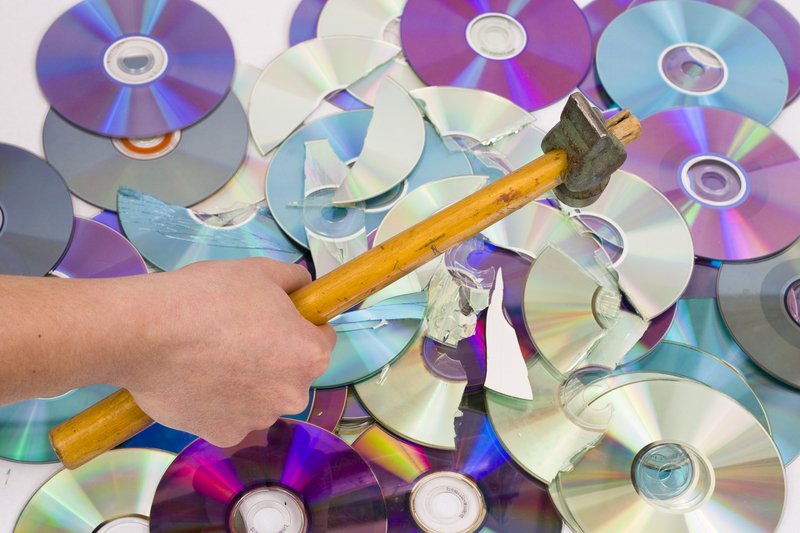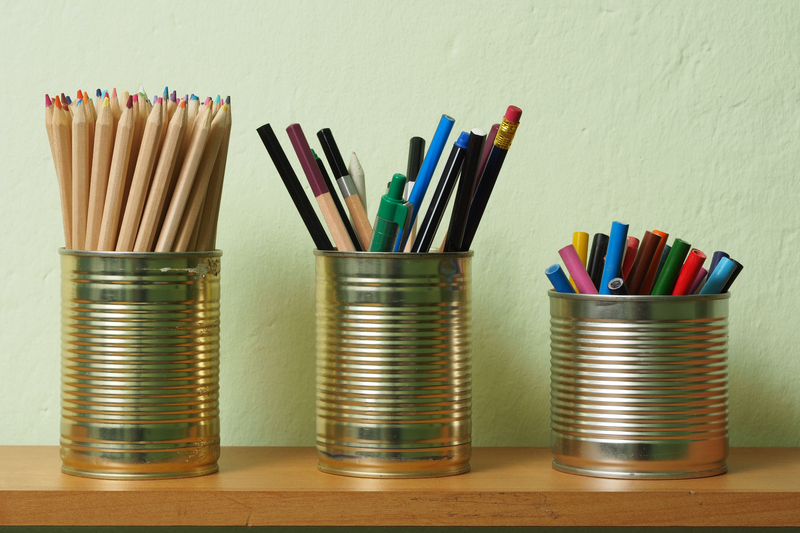Household Waste Reduction Tips for a Cleaner Environment
Every day, households across the globe contribute a significant amount of waste to landfills. As environmental challenges intensify, learning effective household waste reduction strategies has never been more critical. Minimizing waste not only helps protect the environment, but it also conserves resources, saves money, and can even simplify your lifestyle. This comprehensive guide will explore actionable methods and creative ideas for reducing home waste for a cleaner environment.

The Importance of Reducing Household Waste
Waste has a profound impact on the environment. From emitting greenhouse gases to polluting water and soil, the results of unchecked household waste are far-reaching. By implementing effective waste reduction tips for homes, we can significantly lower our carbon footprint and promote a more sustainable world.
- Conserves Natural Resources: Less waste means fewer resources used to manufacture and dispose of items.
- Reduces Pollution: Proper waste management helps lower air, water, and soil pollution.
- Saves Money: Buying less and reusing items reduce household expenses.
- Promotes Healthy Living: Cleaner surroundings and reduced landfill waste lead to better health outcomes.
Top Household Waste Reduction Tips
1. Embrace the 5 R's: Refuse, Reduce, Reuse, Recycle, Rot
The 5 R's framework is essential in any quest for a cleaner household. Let's break down each component:
- Refuse: Say no to unnecessary items, such as single-use plastics, junk mail, or freebies you don't need.
- Reduce: Minimize consumption; buy only what you need and avoid products with excess packaging.
- Reuse: Opt for products that can be reused, such as cloth shopping bags, glass jars, and metal water bottles.
- Recycle: Rigorously separate recyclable materials and know your local recycling guidelines.
- Rot: Compost organic waste, like fruit and vegetable scraps, to enrich your soil and decrease landfill contributions.
By integrating these principles into daily life, you'll naturally cut down on household trash and boost eco-friendliness.
2. Purchase Wisely and Mindfully
One of the simplest waste reduction strategies at home is to think before you buy. Plan your purchases for both groceries and household goods to avoid unnecessary packaging, food spoilage, and disposables.
- Choose products with minimal or compostable packaging.
- Buy items in bulk to reduce packaging waste.
- Support local and eco-friendly brands committed to sustainability.
- Invest in the highest quality, most durable items you can afford; they will last longer and generate less waste.
Making conscious purchasing decisions cuts down on the waste stream while supporting companies aiming for a cleaner environment.
3. Reduce Food Waste
*Food waste* is a significant contributor to landfill volume and greenhouse gas emissions. Effective food waste reduction at home benefits both the environment and your wallet.
- Plan meals for the week and create shopping lists to avoid impulse buys.
- Store food properly to prolong freshness (for example, use airtight containers, organize fridge and pantry for visibility).
- Utilize leftovers creatively in new recipes.
- Compost appropriate food scraps to return nutrients to the earth.
- Understand expiration and 'best before' dates - many foods are safe after the printed date.
These household waste reduction ideas can help you keep your kitchen eco-friendly and efficient.
Practical Waste Minimization in Every Room
Kitchen Waste Reduction Tips
- Switch to reusable containers and wraps (beeswax wraps, silicone lids).
- Use cloth napkins instead of paper ones.
- Choose refillable bottles for condiments and detergents.
- Bulk buy dry goods using your own jars and bags at stores that support zero-waste shopping.
- Repurpose glass jars, food containers, and other packaging for organizing and storage.
Bathroom Waste Reduction Strategies
- Replace disposable razors with reusable safety razors.
- Switch to shampoo bars and bar soaps with compostable or recyclable packaging.
- Opt for reusable cloths and makeup removers over single-use wipes.
- Use bamboo toothbrushes; compost the handles after use.
- Refill cleaning and hygiene products where possible (look for local refill stations).
Living Room and Bedroom: Sustainable Living Tips
- Donate or sell old furniture and electronics instead of trashing them.
- Shop second-hand for home decor, books, clothes, and toys.
- Fix or upcycle worn-out items before replacing them.
- Use blankets and throws for warmth instead of turning up the heat - saves energy and cuts down electricity waste.
- Switch to LED bulbs for longer lifespan and energy efficiency.
Innovative Household Waste Reduction Ideas for a Cleaner Environment
Start Composting
Composting is a powerful way to manage organic waste, reduce household garbage, and enrich your garden or local green spaces. You can compost in a backyard pile, bin, or even try indoor vermicomposting with worms. Acceptable items for most home composters include:
- Fruit and veggie scraps
- Coffee grounds and filters
- Eggshells
- Yard trimmings
- Paper towels and napkins (unbleached and chemical-free)
Implement a Home Recycling System
Recycling is a key component of home waste reduction for a cleaner environment. To make it easier for the whole family:
- Set up clearly labeled bins for paper, plastics, glass, and metals.
- Rinse containers before recycling to avoid contamination.
- Stay informed about your local recycling rules, as guidelines vary by location.
- Recycle electronics, batteries, and hazardous materials at special collection points.
Buy in Bulk and Avoid Single-Use Items
Another effective way to minimize household waste is by purchasing in bulk and eliminating single-use products. Suggested ways include:
- Bring your own shopping bags, produce bags, and containers when shopping.
- Switch to reusable water bottles, coffee cups, and utensils.
- Avoid buying individually wrapped snacks; prepare your own in reusable containers.
Repair, Repurpose, and Upcycle
Before throwing things out, consider if they can be fixed or used in another way. Upcycling and repair not only reduce waste at home but foster creativity and resourcefulness.
- Mend clothes and shoes, or repurpose fabric for cleaning rags.
- Transform old furniture with a fresh coat of paint or new hardware.
- Create storage containers from jars, tins, or boxes.
Engaging the Family in Home Waste Reduction
Set Goals and Track Progress
Motivating everyone in your household is essential for successful waste reduction at home. Set clear goals--such as producing only one bag of trash per week or composting all organic waste--and measure your progress over time.
- Use a chart or app to monitor reductions in waste, recycling rates, and compost volumes.
- Celebrate milestones and achievements together.
Teach Kids About Environmental Stewardship
Educating children about the value of minimizing household waste can create lifelong habits. Involve them in separating recyclables, composting, and creative reuse projects.
- Encourage crafting with waste materials (bottle cap art, cardboard projects).
- Read books and watch documentaries on environmental issues as a family.
- Engage in local clean-up events or recycling drives together.
Common Household Waste Reduction Mistakes to Avoid
- Wishcycling: Placing non-recyclable items in the recycling bin in hopes they will be recycled. Always check local guidelines.
- Overbuying groceries: Leads to food spoilage and unnecessary waste--plan your meals!
- Ignoring battery and electronics recycling: These items require safe disposal to prevent toxic leaks.
- Disposing of hazardous materials improperly: Paint, chemicals, and medicines often have special disposal instructions.
- Not involving the whole household: Sustainable changes require teamwork and shared responsibility.

Benefits of Household Waste Reduction
- Cleaner, healthier homes and communities
- Cost savings on groceries, utilities, and new products
- Lower carbon footprint
- Greater self-sufficiency and creativity
- Promotion of a circular economy
Implementing household waste minimization techniques is a simple but powerful step toward a greener, cleaner future for our planet.
Conclusion: Start Your Waste Reduction Journey Today
Reducing waste at home is a journey, not an overnight transformation. Even small changes can accumulate into a significant impact over time. By applying these household waste reduction tips--such as embracing the 5 R's, composting, mindful purchasing, and fostering a culture of reuse--you can make your home a model of ecological responsibility.
Remember: every item you refuse, reuse, or recycle brings us one step closer to a cleaner environment. Begin with one change today, and inspire your family and community to join you on the path to a sustainable future.
Together, we can create cleaner homes and a healthier world--one waste-free habit at a time!